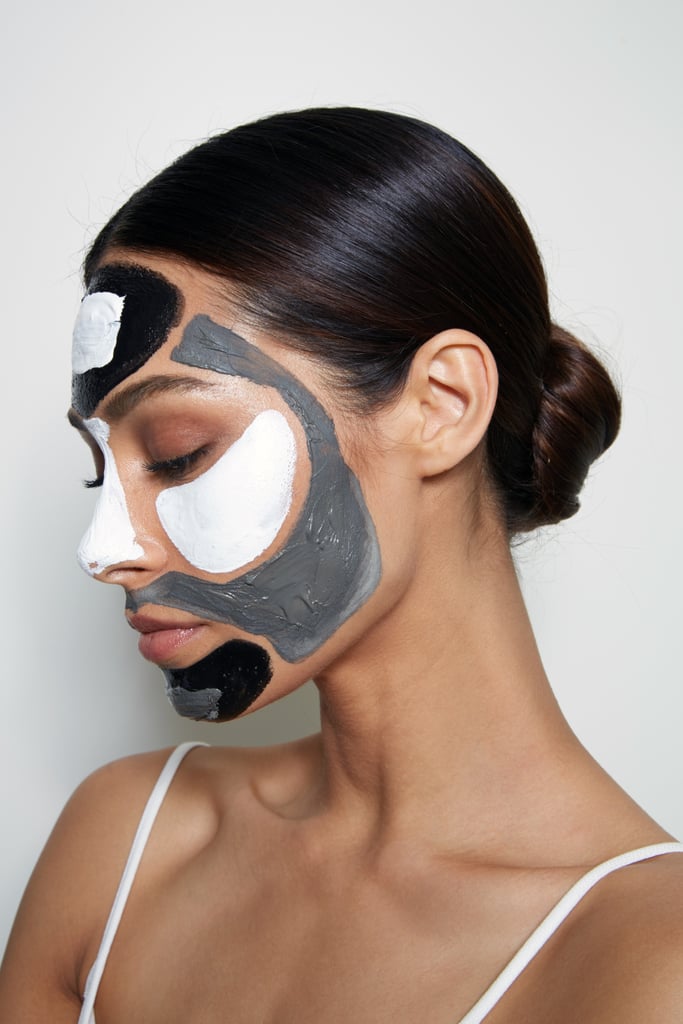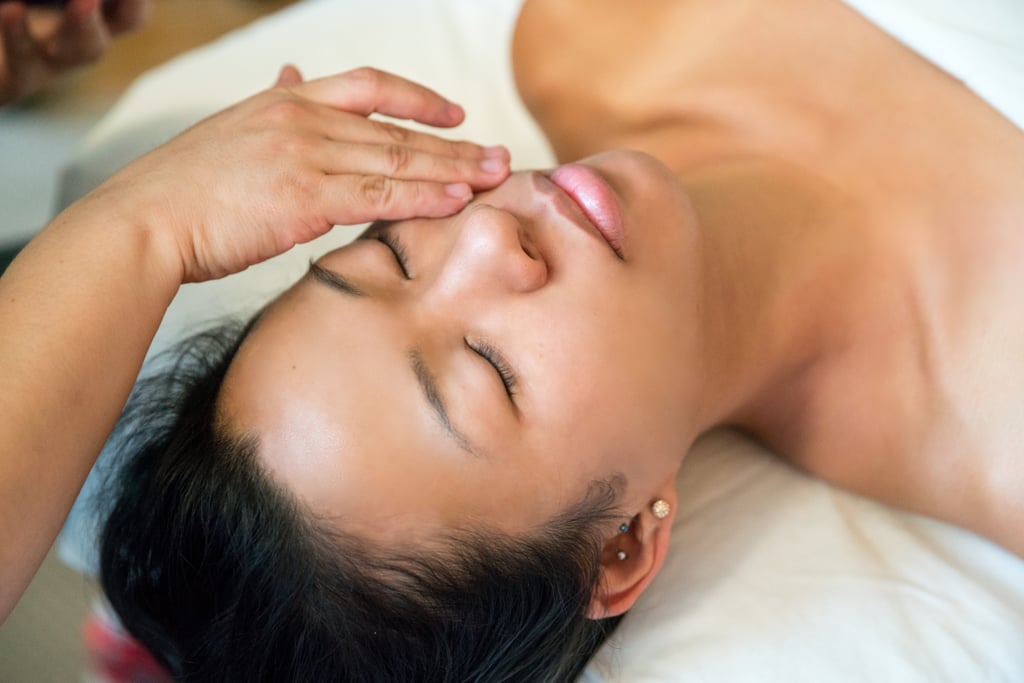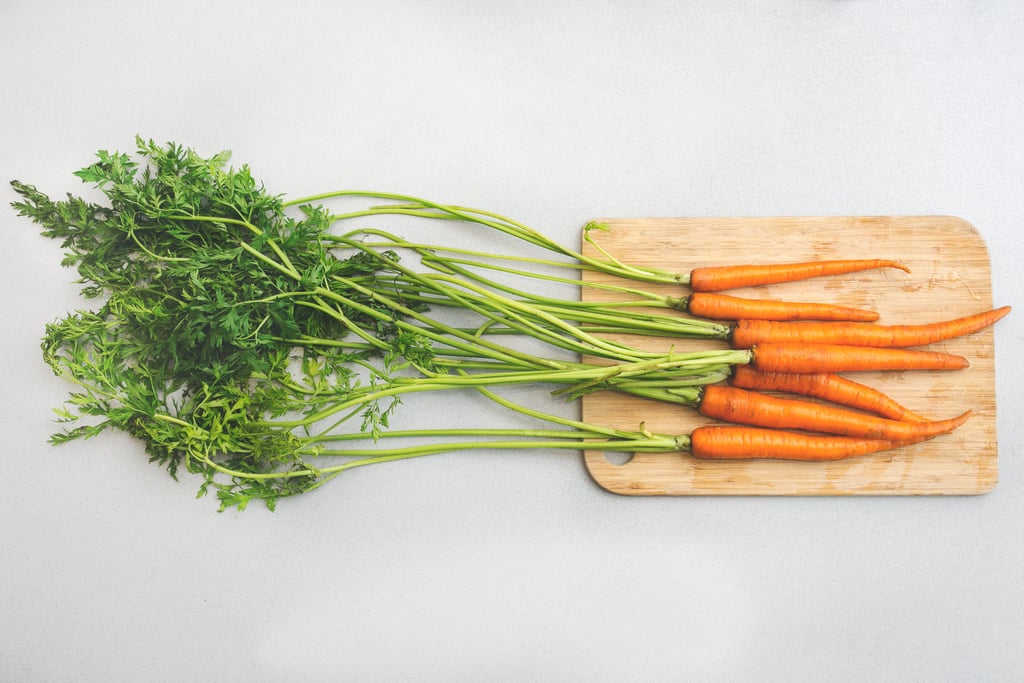First, let's set the record straight for the zillionth time. Yes! You should 100 percent absolutely be wearing sunscreen [1] every single day without exception. We'll call it the golden rule of skin care and the number one must-do that just about every medical professional on the planet will stand behind. Get it, got it, good!
But sun protection is hardly our only worry in the world of skin care. To help clear the air on the billions of other skin concerns we are all stressing about, we spoke to top dermatologists to shed light on the most frequently asked skincare questions. Here are your top five skincare questions, answered!
Question: What do I do for the wrinkles that I already have?

"The answer to this depends on what kind of wrinkles the patient has and where they are on the face," board-certified dermatologist Papri Sarkar [2] said.
"If they have mostly fine lines or wrinkles or not much in the way of wrinkles at all, I recommend a retinoid. In general, they need to use it about three times per week at night and slather themselves with moisturiser afterwards so they don't get too dry or irritated. Retinoids do a great job of preventing and treating fine lines and wrinkles and also help to even out skin tone over months."
"If they have deeper wrinkles, they are probably good candidates for botox, fillers, or lasers depending on where those wrinkles are."
Question: Are natural products effective?

"The most effective anti-ageing natural ingredients are generally alpha hydroxy acids that are derived from fruit enzymes," Sarkar noted. "They help to uncover glowing, fresh skin and banish the dull layer of dead skin that many people have. They also make skin look more even toned by addressing dark spots."
If you prefer a more grainy exfoliate, try sugar! "Brown sugar is gentle enough to not irritate skin but has enough heft to get rid of dead skin cells."
Facial oils are another natural anti-ager that help to moisturise and keep the skin looking plumper. "Naturally occurring retinols aren't as effective as the ones made in a factory, but because they're generally formulated as oils, they're much less irritating. Rosehip oil works well, but be prepared to wait some time to see results," Sarkar said.
Question: How do I improve dark circles and pigmentation?

"Dark circles are genetic and typically a combination of hollowing and volume loss from ageing or high metabolism," cosmetic dermatologist Jason Emer [3] explained. To treat this, you will need fillers, fat injections, or skin-tightening procedures.
"But darkness on the surface, related to skin colour staining (hemosiderin or genetic), will need peels, microneedling with growth factors, or exfoliating skincare products with ingredients like kojic acid, hydroquinone, or glycolic creams," he noted. "While monthly lasers can be helpful to stimulate deep heating of the skin to break apart the deep pigmentation, this is one condition where peels, facials, and sun protection does much more for the skin over time. At-home vitamin C masks and retinol masks once a week, combined with derma-rolling, will really help to combat pigmentation as well as wrinkles and pores."
Question: How important are facials for anti-ageing?

Think of facials like a workout for your skin. "Professional skincare treatments are extremely beneficial because they deliver high-quality, active ingredients to the skin, which assist in cellular renewal and turnover," esthetician Candace Marino explained. "Just like trying a new exercise class, trying a new skin treatment challenges the skin and impacts the structural health of the skin while giving you a glow."
"Removing dead skin and cellular debris will instantly make the skin look younger and fresher. Similarly, when buildup is removed from the pores and the skin is hydrated, fine lines are less noticeable."
The facial massage is one of the best anti-ageing aspects of a facial because "it tones the muscles and assists in lymphatic drainage, which will reduce inflammation and sculpt the contours of the face."
Question: Does diet really impact aging?

"My rule is if it's bad for your waist, it's bad for your face," Marino said. "Inflammation is the skin's worst enemy, and diet can be directly linked to inflammation in the body, which creates flare-ups on the skin."
Dairy, saturated fats, and sugar are known irritants to the gut and directly impact the ageing process, specifically refined sugars like those found in processed foods and sweets.
"Once sugar enters the bloodstream, it creates a byproduct called advanced glycation end products (AGEs), which break down proteins in the body, specifically collagen and elastin. Once collagen and elastin are depleted in the skin, you begin to see the breakdown of skin integrity resulting in skin laxity and deep wrinkles at rest," Marino explained. "I recommend my clients to subscribe to an anti-inflammatory diet to keep acne, rosacea, and wrinkles off the radar."
Opt for a colourful diet full of fruits and vegetables in order to power your body and skin with vitamins and antioxidants that will protect it.